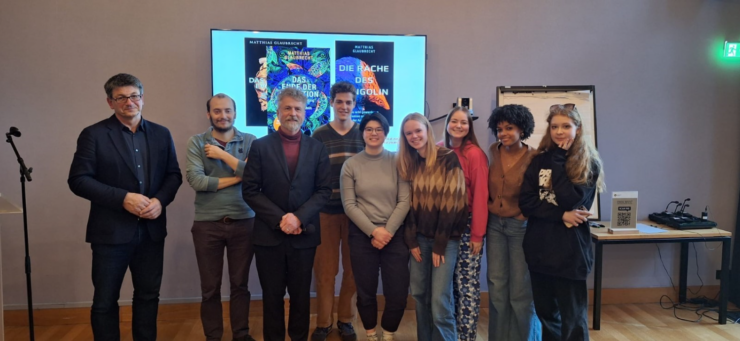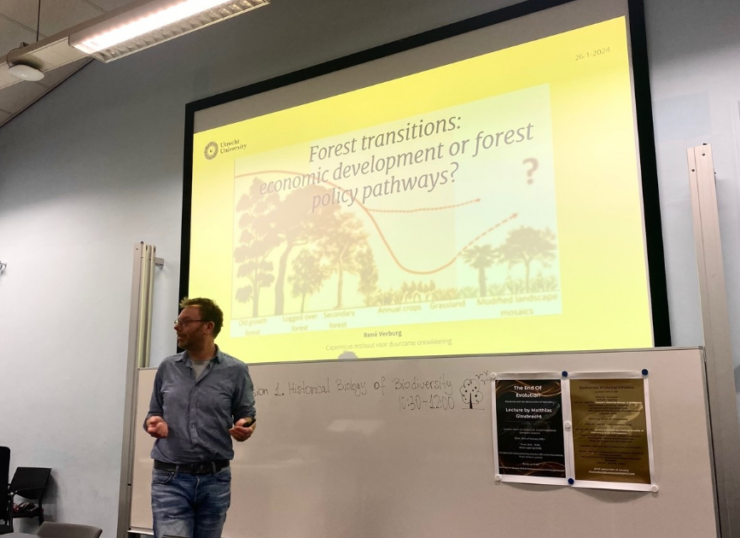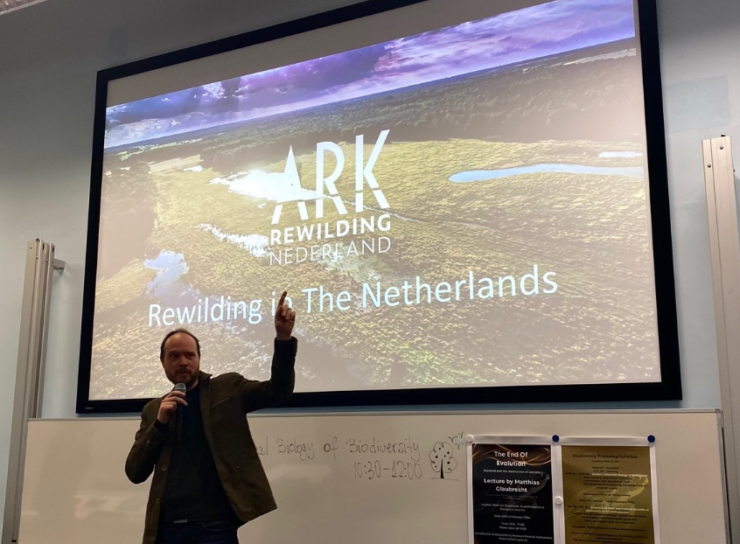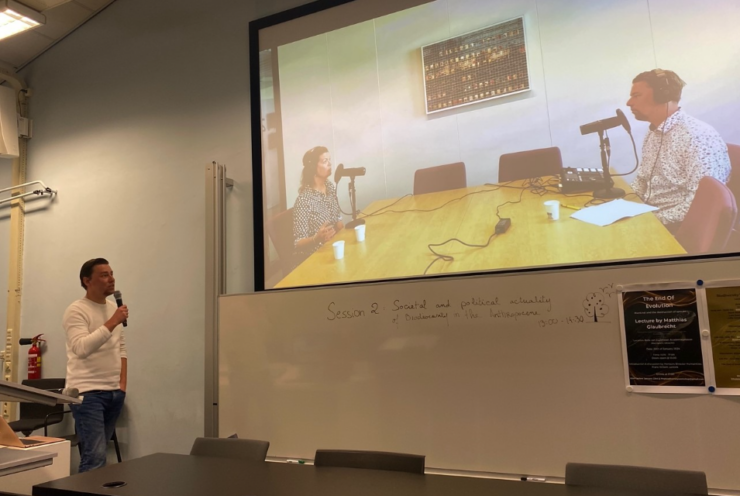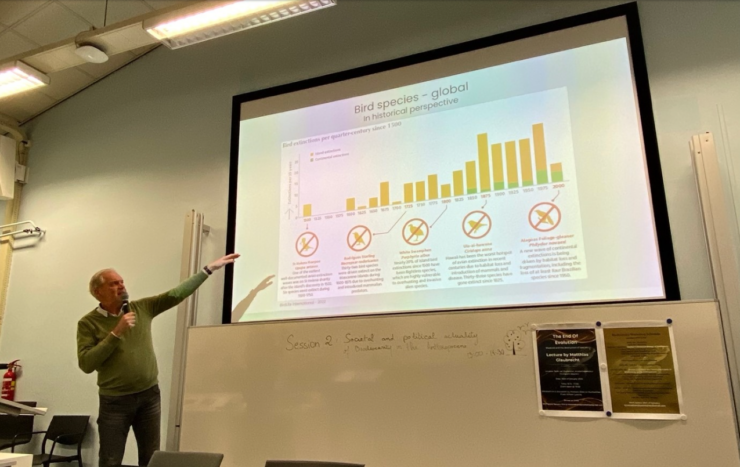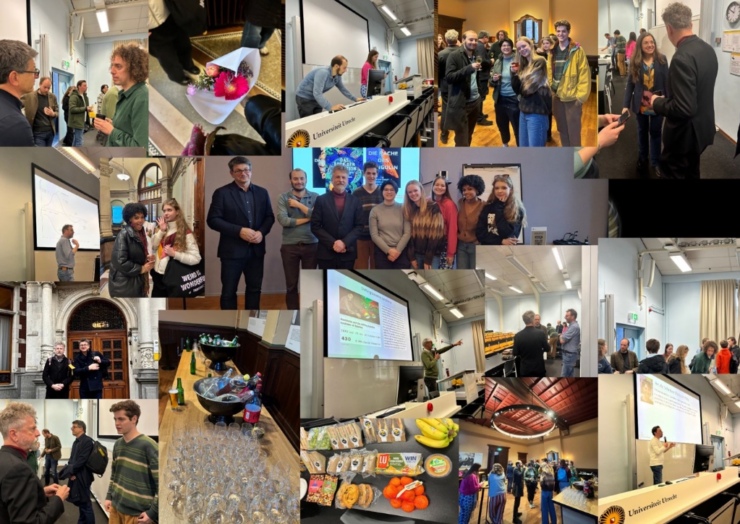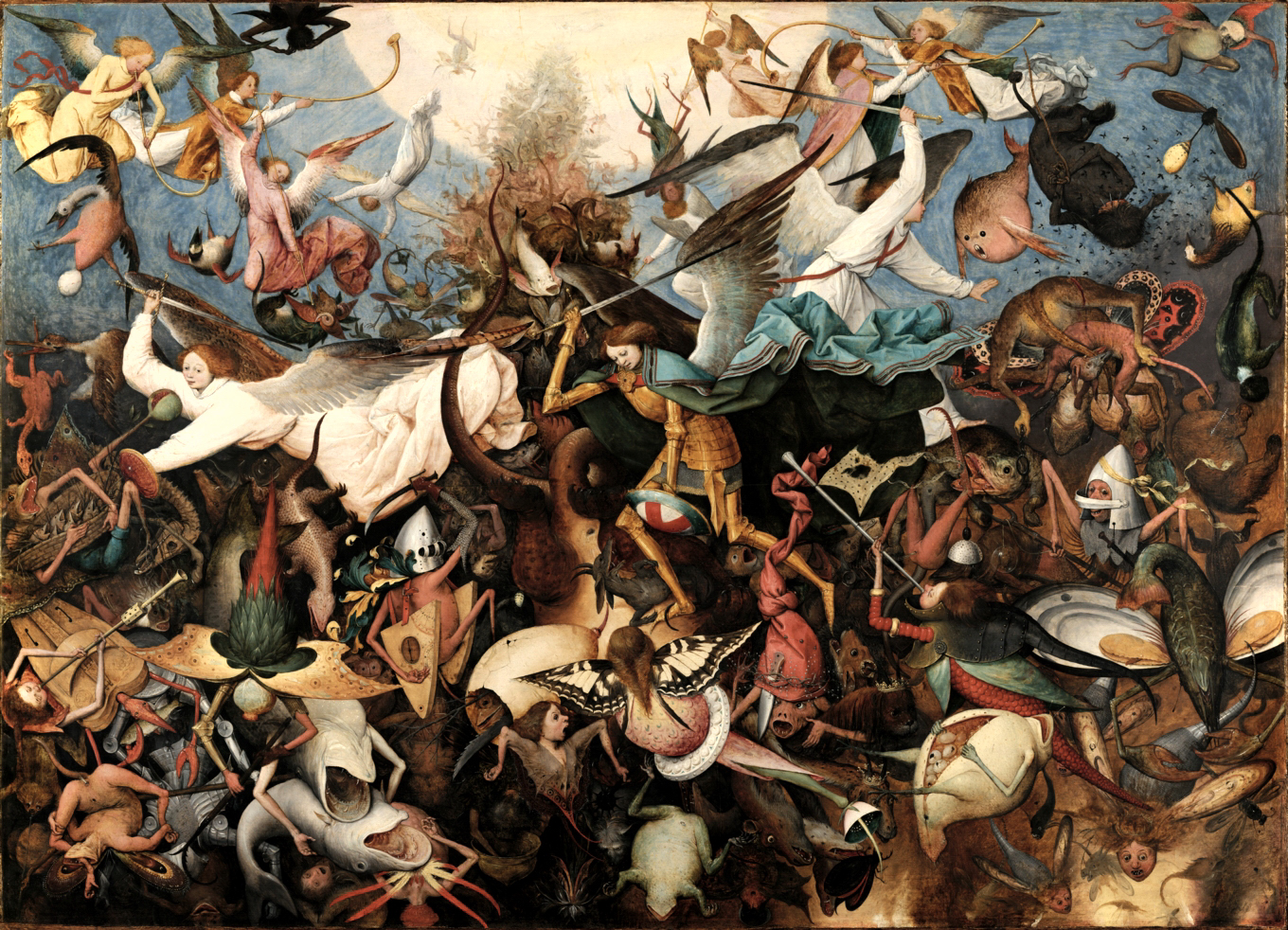Actualiteit
Biodiversity Workshop – January 26th, 2024
The Humanities Honours Programme, uniting students from different faculties and study trajectories, aims at creating an environment of interdisciplinary learning for its participants. During block 3 of the 2023-2024 academic year, students followed a variety of interdisciplinary courses linked to ecology, literature, and many more fields of interests. Among these courses was the course “The End of Evolution”? Biodiversity in the Historical Perspective of the “Anthropocene” produced and curated by Dr. Frans Willem Lantink.
Throughout the course, students examined a variety of viewpoints regarding humanity’s impact on our planet and on the Earth’s biodiversity in particular, as well as the possible future outcomes of the aforementioned impact. Producing papers on their topics of interest within the field, all students overviewed the state of affairs within academic debate surrounding biodiversity and presented their contributions to it. We encourage you to read through these papers, as we attach the link to the papers’ archive at the end of the article. To further participate in the debate and allow others to do so as well, the working group of students organized a Biodiversity workshop on January 26th, 2024.
The workshop, open to all Honours students of Utrecht University, consisted of two parts: a discussion panel featuring a variety of introductory talks by five experts in the field of Biodiversity in the afternoon, and a lecture by Matthias Glaubrecht – a German expert in animal biodiversity and the author of a book titled Das Ende der Evolution (‘The End of Evolution’), around which the course “The End of Evolution”? Biodiversity in the Historical Perspective of the “Anthropocene” was structured. Both the discussion panel and the lecture were met with vast interest from the Honours community, welcoming approximately 50 audience members throughout the day. Let us now delve deeper into the details of that day.
The collective part of the workshop was, too, divided into two separate discussion panels in accordance with the following topics:
– Session 1: Historical Biology of Biodiversity
– Session 2: Societal and Political Actuality of Biodiversity in the Anthropocene
During the first session, three speakers presented their topics of research to then discuss the interrelationship between biodiversity and policymaking in different countries. Dr. René Verburg, who is currently an assistant professor at Utrecht University, introduced the
audience to the debate surrounding the tradeoff between economic development and forest policy pathways. Lars Soerink, a member of the ARK Rewilding (a Dutch initiative group working in the field of nature preservation) then shared ARK Rewilding’s efforts surrounding the rewilding of the Netherlands. Concluding the first part of the workshop, Dr. Jelle Zandveld, also a current member of Utrecht University professor department, shared the details of his research of the biodiversity of nocturnal moths and the related experiments conducted to document the behavioral patterns of different species in Utrecht. The three speakers were then invited to discuss the impact current laws (or lack thereof) related to preservation of natural habitats have on our Planet’s ecosystem and its niches.
After a short intermission, the second round of talks and discussions took place. Anthonie Stip, a member of De Vlinderstichting (butterfly and dragonfly preservation foundation), and the founder of Toekomst voor Natuur’ podcast, presented a list of action points we are ought to take to conserve nature and protect our environment. Dr. Marc Argeloo, a Dutch researcher and book author, concluded the series of talks with a presentation about shifting baseline syndrome. The two speakers were then invited to participate in the discussion panel focusing on the role of academics in raising nature awareness, covering both educational and populist opportunities of distributing the available research within our society.
At the end of these two discussion sessions, everyone was invited to attend the final part of the workshop, during which Matthias Glaubrecht, invited from Germany to give a guest lecture at our university, spoke about his research on the ongoing destruction of species accelerated by humanity’s activity, giving the students of the course and the audience the opportunity to hear out the viewpoint represented in his book Das Ende der Evolution in person. Frans Willem Lantink, the curator of the aforementioned course and the co-organiser of the workshop, led the introduction and the discussion following the lecture.
At the evening’s end, the attendants were invited to a reception to reflect on the topics of interest and concern.. The workshop sparked many interesting discussions and undoubtfully left the participants inspired to further follow the developments in the field of biodiversity in a true Honours Programme fashion – collectively and interdisciplinary. We cordially thank all the guests, audience members and organizers for this opportunity to expand the discussion.
Course Coordinator: Dr. Frans Willem Lantink
Course members:
Anna Ratkovich, Bart Kersten, Chloë Stol, Nanne Gradijn, Shian Perez, Soesja Steehouwer & Wiebe Groot
